Intonal Festival 2022
This year’s Intonal Festival in Malmö returned with fresh ideas and a strong lineup headlined by the likes of Grouper, Space Afrika, Jana Rush, Elena Colombi, Nkisi and Hiro Kone.
This year’s Intonal Festival in Malmö presented what was perhaps its strongest lineup yet, not saving the most attractive acts for peak weekend spots, as festivals often do. The traditionally free Ambient Assembly, taking place outdoors, kicked the festival off on Wednesday, April 20th, with Nkisi and Rytmiskonsekvens headlining, and the following day was marked by a rare concert by Grouper at S:t Johannes Church. The likes of Hiro Kone, Jessica Ekomane, John T. Gast and Low Jack led the festivalgoers into a weekend packed with strong acts at Inkonst, possibly the most important music and performance venue in Malmö.
For those of us who could only make it to the final two days of the five-day festival, the program started in a beautiful way, early on Saturday afternoon with a performance by Naoko Sakata, a Japanese improvisation pianist currently based in Sweden. Displaced from the festival’s main venue at Inkonst, the concert took place at Malmö Konstmuseum, in the castle chapel that is reached through one of the museum’s exhibition rooms. Bent over the piano, with her bright red hair hiding her face, Sakata confidently moved from sparse, minimalist compositions to almost aggressive, maximalist pieces. The crowd at the packed chapel seemed delighted, and even convinced her to do an improvised encore.
Outside, you could tell that the usual Scandinavian spring, with its long daylight hours, had finally arrived, as the weather was just perfect for a slow walk through the gorgeous Slottsparken, all the way to the hip Möllevången area. There, in the small space of the Whose Museum, Tbilisi’s Mutant Radio hosted a live radio program in collaboration with Malmö’s local Retreat Radio. We hung around for a while, waiting for a set by the drummer, percussionist, composer and overall badass Valentina Magaletti. She played some exclusive material from an upcoming release, getting us excited for both the new stuff and her live performance later that evening.
Over at the Inter Arts Center, next door to Inkonst, there was a free-admission program consisting of two acousmatic concerts and a performance by the Copenhagen-based musician and sound researcher Jenny Gräf. A fixture in the Copenhagen scene, Gräf presented a performance developed at the IAC residency, featuring musical experiments with objects such as ceramic speakers and magnets, as well as a bow and… well, another bow. Having seen a few of her performances in recent months, this one felt like a cherry on top of her current research in sound.
Upon finally entering the main venue for the rest of the night, we were welcomed by what looked and sounded like a full-blown party with a complete disregard for the fact that it was barely 10 pm. Down in Inkonst’s Black Box, Shackleton didn’t waste time on easing the audience into his long, sturdy set. Kicking things off with such an energetic set this early in the night actually seemed like a great idea, if underused at festivals. One of the side effects – or intended effects? – of this approach was a crowd of middle-aged men pumping fists and jumping like crazy in front of the DJ booth. Perhaps this gig was a long time coming; either way, it was unabashedly fun.
Above ground level, over at the Big Stage, the Manchester duo Space Afrika provided an extended moment of composed reflection. With one of the most mesmerizing albums of 2021 under their belt, Joshua Inyang and Joshua Reid didn’t seem to regard their live performance as merely a challenge of translating the recorded material into a live setting. Rather, the live set took on a life of its own, with its particular pace and accompanying visual materials. Two figures emerged through the haze of the smoke machine, much like black-and-white footage of a city street shown on the screen behind them, accompanied by the pitter-patter sound of rain falling on asphalt. The background beats slowly became more resonant, sounding as though they’d been culled from field recordings. The dominant vibe was very much urban and after-dark, although not necessarily the “post-club” type of nocturnal atmosphere; abstract but rooted in concrete (no pun intended). The footage of a police arrest earned a few shout-outs from the audience, possibly to state that – even though Sweden is usually represented in near-utopian terms – it is no stranger to police racism and brutality. Anyway, it’s rare to see such a meticulously built set that doesn’t bow to the common festival set expectations of balancing loud with quiet, as well as fast and slow points. As Space Afrika wrapped up their performance, it felt as though we needed to snap out of the spell we’d been put under.
There was little time for recollection, as Jana Rush quickly took over the same stage with her full-on footwork assault, easily proving why she is unparalleled in her field. Over at Small Stage, Valentina Magaletti and Al Wootton’s collaborative project Holy Tongue was equally merciless. A pairing of a well-known percussionist and an equally renowned producer, Holy Tongue did not beat around the bush, immediately launching into its tight, trance-inducing rhythms underlined by a heavy dub bass. The experimental saxophonist Ben Vince, who played at the festival earlier that day, joined the band on stage, which was very convenient, given that he was featured on a few tracks on Magaletti’s and Wootton’s 2021 record Holy Tongue II. Despite Holy Tongue kicking ass and the sound being quite good, Small Stage remained the weakest spot of Intonal’s live shows. It just felt better suited for artist talks and relaxed DJ sets, both of which could have made for a very useful space to decompress from the heavy gigs on Inkonst’s other stages.
I was particularly looking forward to seeing Elena Colombi’s set at Black Box, as I’d been waiting for quite a while to catch her live (despite having even booked her once). Her sickening tape, Beyond The Pleasure Principle, a recording of her set at a 2019 Climate of Fear party, has recently – and much belatedly – come to be my ultimate late-night cycling soundtrack. Even if I didn’t expect her performance at Intonal to be as out there as the aforementioned one, the set definitely lived up to the expectations of being stunning and rapturous. Elena Colombi’s approach to DJ-ing, as well as to her popular radio show on NTS, is usually described as “eclectic”. And while that tag might get too easily thrown around, in Colombi’s case, there’s hardly a better way to describe her over-the-place approach. Still, “eclectic” doesn’t say much about her mad skills of throwing all these different styles together – while keeping it all dynamic and fun – and this is something that definitely deserves a mention. She got the crowd properly charged, and probably helped keep them ready to tackle the very late-night closing set by the Detroit legend DJ Bone.
Sunday, the final day of the festival, didn’t exactly rely on those who’d stayed out late partying the previous night. Taking on a more serious note, Intonal opted for mostly calm, sitting-down concerts. The neighboring Inter Arts Centre again offered several free shows, including an excellent performance by the Copenhagen composer and musician Jaleh Negari. It’s also nice to see a strengthening of the artist exchange across the bridge, which only made me think of how unusual it was that there aren’t more Copenhageners attending Intonal, given that it is quite different from what the current festival landscape in Denmark has to offer. Perhaps it’s safe to ascribe that to the high price of the train ticket between Copenhagen and Malmö, however, the exchange would benefit both cities.
One of the two main concerts that day was the performance of “Clouds For Three Tubas”, a new piece by the Swedish avant-garde composer Ellen Arkbro. Performed by “the only microtonal tuba trio in the world” Microtub, for whom it was specifically composed, the piece took its time to unravel into a long, calmly pulsating drone. The non-soundtracked break between this and the next show could have been filled by another type of performance. Although it was the last day of Intonal, and those who attended the full program were surely tired by this point, there also seemed to be many people who only came to the Sunday program. If it’s common to have a chill area or set between party acts, why not take the inverse approach and have a more dynamic set fill the pause between two classical shows? Perhaps people were just fine with grabbing a drink and a smoke, but it’s possible that adding a lively set in the break could have been an interesting experiment.
The festival ended on a high note, with the members of Malmö’s Symphonic Orchestra performing Arthur Russell’s gorgeous orchestral composition “Tower of Meaning”. With Russell’s collaborators, conductor and percussionist Bill Ruyle, and trombonist Peter Zummo, leading the orchestra, this rare opportunity to hear the beloved late musician and composer’s music performed live – and to see a conductor wearing a festival wristband – was as delightful as it was rewarding. On a less relevant note, we’d seen Ruyle and Zummo having lunch at the same place as us earlier in the day – hopefully they enjoyed their stews as much as we did!
After two precarious years for live music events – with 2020’s Intonal having been canceled due to the pandemic, and the 2021 one having been held under attendance restrictions – the festival, now in its seventh edition, returned with a bang. Although Intonal has always had very strong lineups, this year’s selection felt like perhaps the most consistent one yet. With the underground music festival scene growing across Europe from year to year, it’s becoming increasingly difficult for festival organizers to not only stand out but also to build a distinguishing personality for their festival. There are many possible categories for festival curators to focus on when selecting artists: artists who have released acclaimed records in the previous year or two, current festival hot-shots and acts that are of particular interest to specific local scenes, as well as artists who are simply some of the organizers’ favorites. And it seems like, after years of trying out different strategies, Intonal has found a perfect balance between all of the above, all the while casually maintaining an enviable level of diversity on the bill.
Unlike some other festivals, which lull into a certain shape and form once they figure out what works, Intonal keeps slightly changing things up from year to year, whether it’s presenting completely different types of artists or opening up new collaborations and venues. This might be down to Intonal simply not having reached the steady stage yet, but it seems more likely that the team behind the festival keeps working out new ways to keep things interesting – even for the regulars.





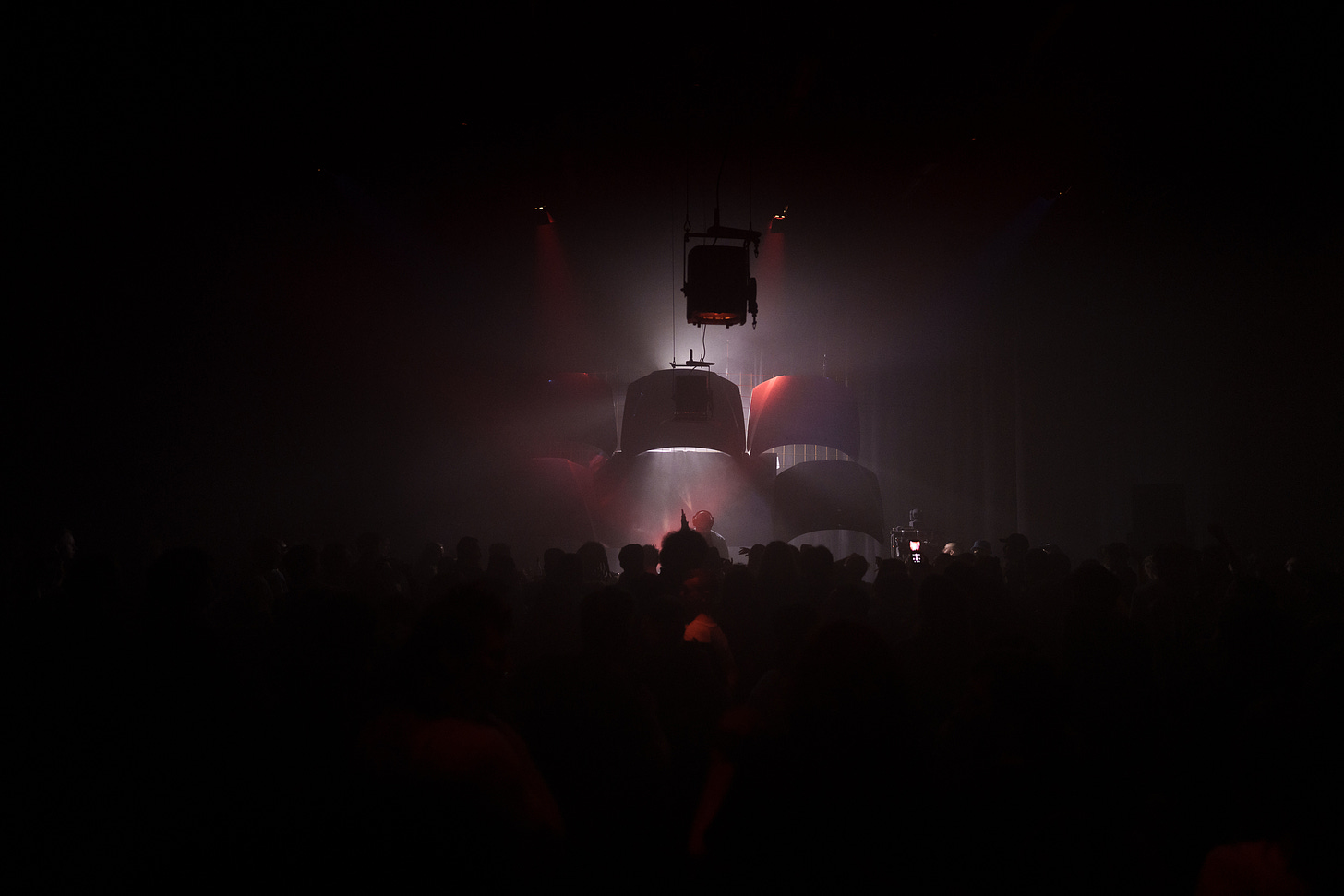
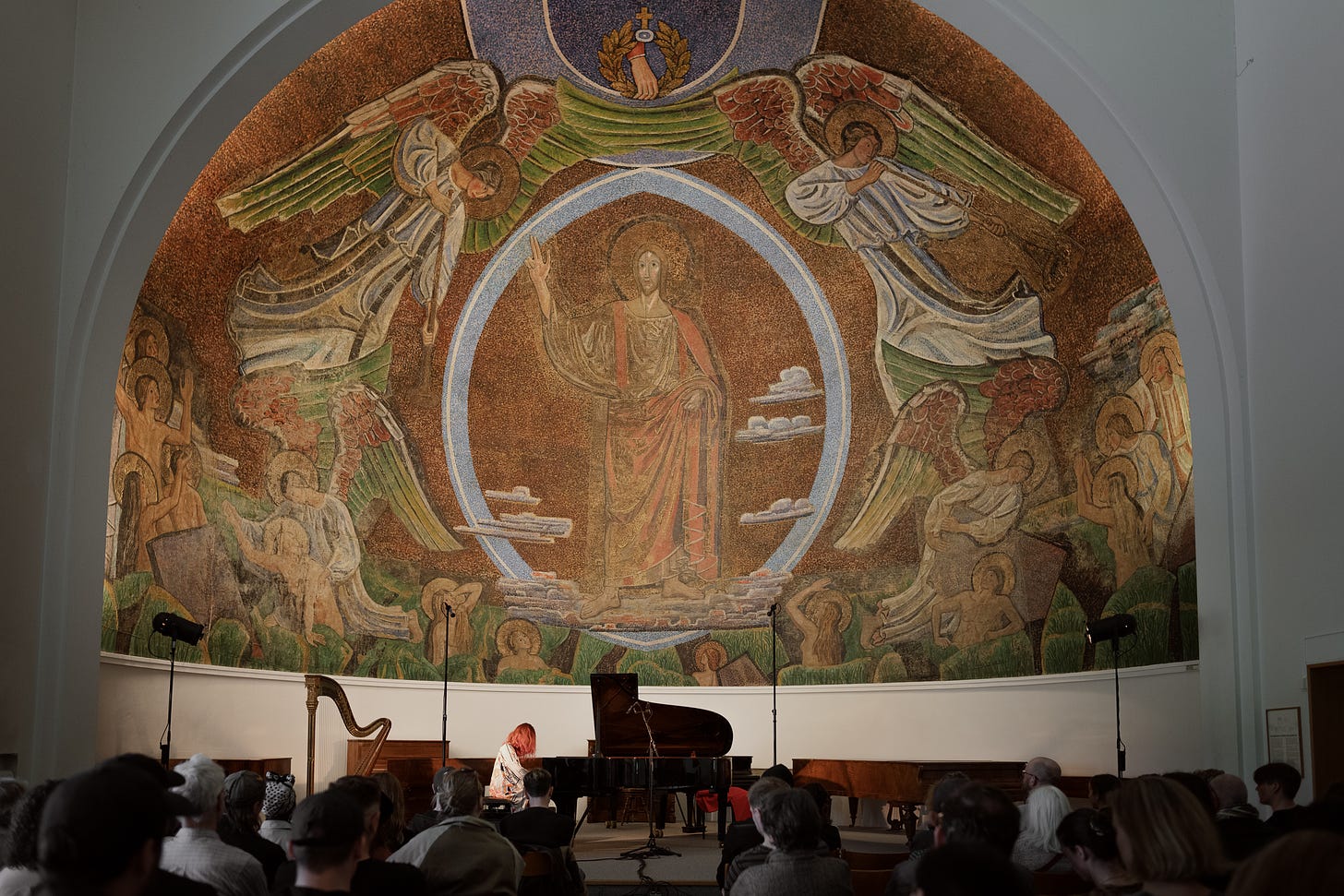
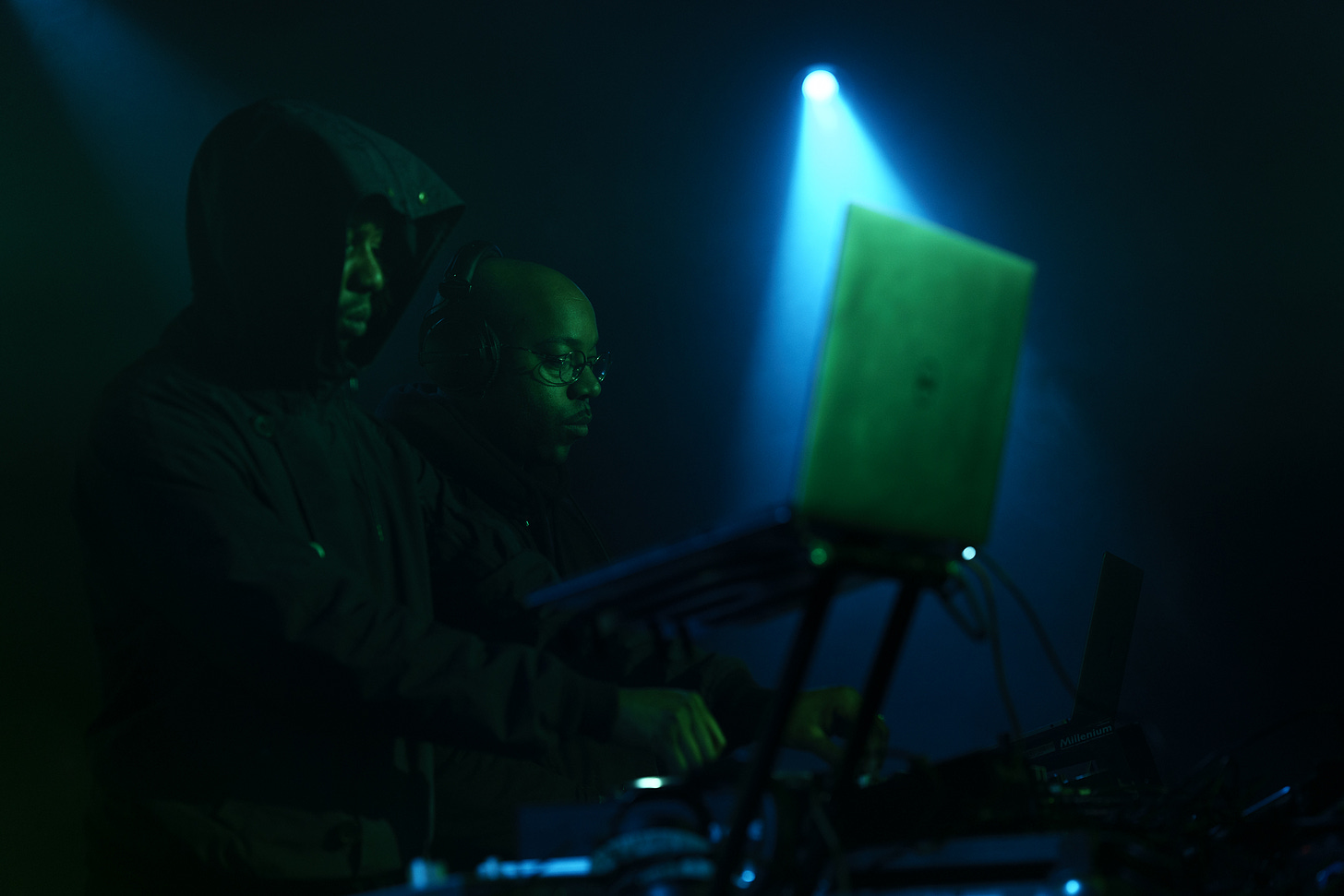
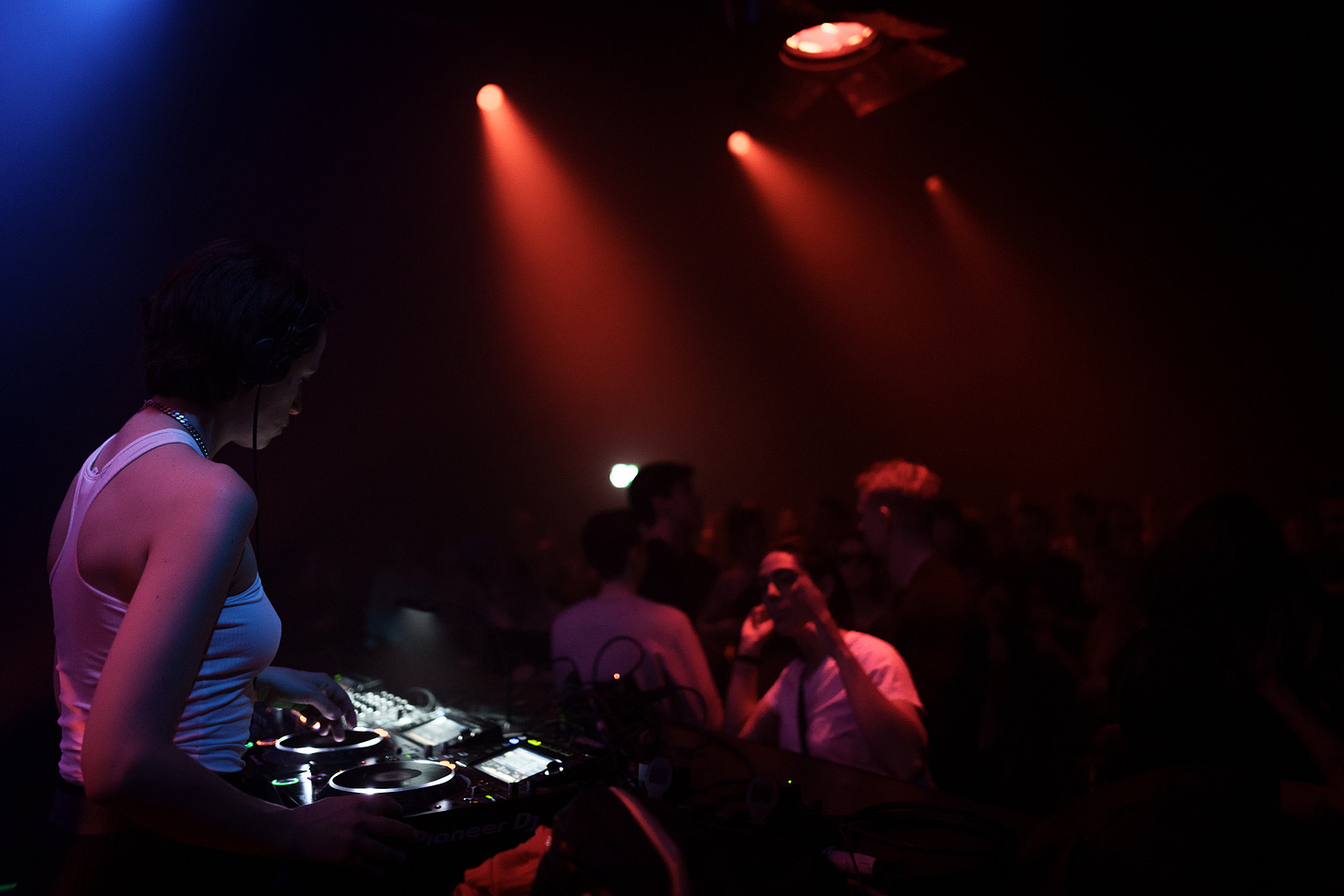
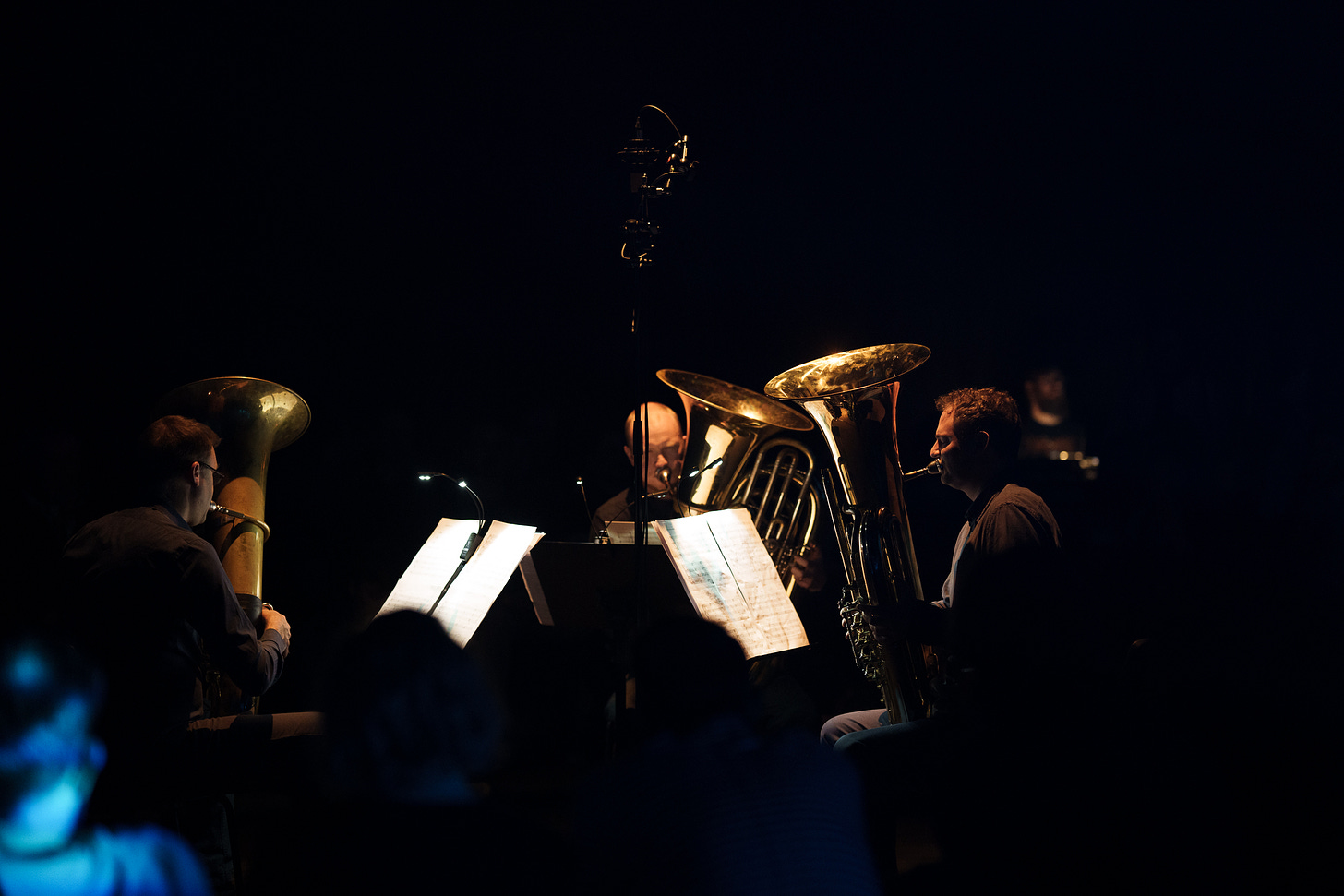
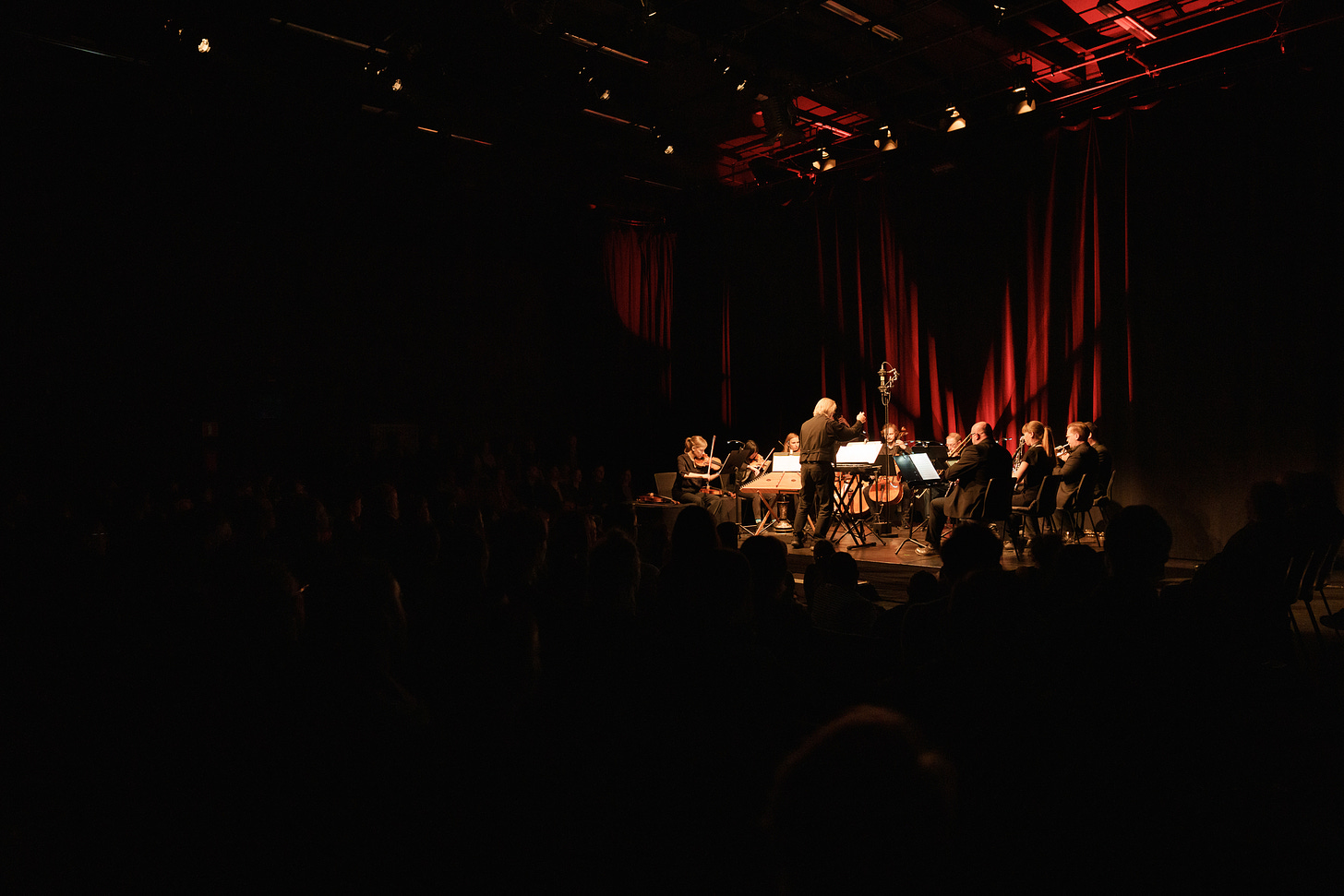
Haha I love it.
Shackleton was just a bit over an hour btw
Best, Middle-aged fistbumping man